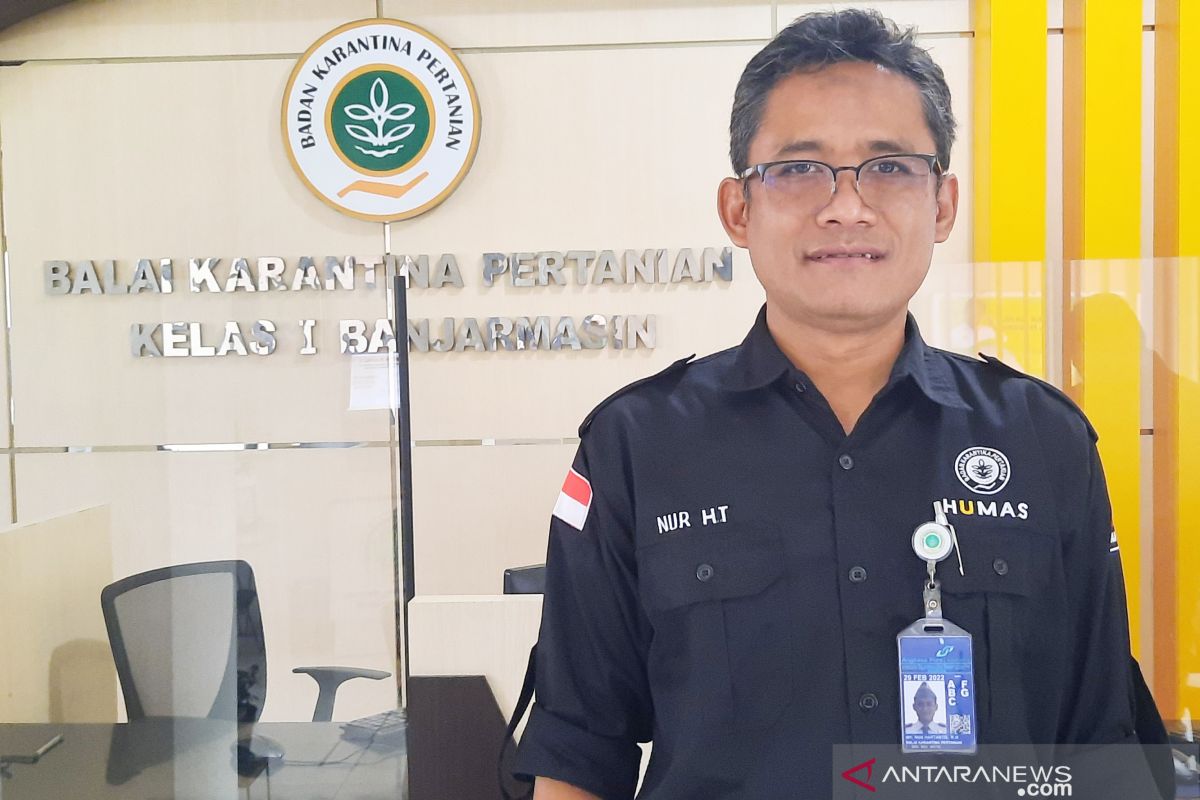The Agriculture Ministry through the Banjarmasin Class I Agriculture Quarantine Agency encouraged the planting of porang (elephant foot yam) in South Kalimantan to meet the export as demand for foreign markets increases.
"China and Japan are wide open to become porang export market. Not only for consuming food, it is also used for industrial raw material, such as glue, flour, cosmetics, and others," said Head of the agency Drh Nur Hartanto, Saturday.
Porang, he said, is now being developed in almost all areas in South Kalimantan. The local government supports its mass planting, so as not to rely solely on taking plants from the forest, as well as to ensure the continuity of supply when a large market demand comes for a certain period of time.
Hartanto revealed a demand of 100 tons of porang export to Japan for five months, which were supplied by the Balangan District. But lately, it can't be continued because of the drying equipment problem, so it must be sent to Java to be processed before being exported.
He acknowledged of the processing equipment as an obstacle in South Kalimantan. Thus, the porang was sent still in the form of tubers and some in the form of chips.
"One of the districts whose regent is committed to preparing processing equipment is Tabalong regent. Event the regent has asked for the delivery of porang in the form of flour," he said.
The Agriculture Quarantine Agency has the task of fostering the traffic of both animal and plant products. Every agricultural and livestock product is required to hold a quarantine certificate as a condition for shipping both domestically and for export.
For South Kalimantan, so far the mainstay of exports are rubber, palm oil its derivatives, and plywood.
Read also: Tapin gets ready for year-end level 3 PPKM policy
Read also: Banjar Regent hopes YESS will reduce unemployment rate
Read also: HSS to provides 500 urine test kits for BNNK to test ASN
COPYRIGHT © ANTARA News Kalimantan Selatan 2021
"China and Japan are wide open to become porang export market. Not only for consuming food, it is also used for industrial raw material, such as glue, flour, cosmetics, and others," said Head of the agency Drh Nur Hartanto, Saturday.
Porang, he said, is now being developed in almost all areas in South Kalimantan. The local government supports its mass planting, so as not to rely solely on taking plants from the forest, as well as to ensure the continuity of supply when a large market demand comes for a certain period of time.
Hartanto revealed a demand of 100 tons of porang export to Japan for five months, which were supplied by the Balangan District. But lately, it can't be continued because of the drying equipment problem, so it must be sent to Java to be processed before being exported.
He acknowledged of the processing equipment as an obstacle in South Kalimantan. Thus, the porang was sent still in the form of tubers and some in the form of chips.
"One of the districts whose regent is committed to preparing processing equipment is Tabalong regent. Event the regent has asked for the delivery of porang in the form of flour," he said.
The Agriculture Quarantine Agency has the task of fostering the traffic of both animal and plant products. Every agricultural and livestock product is required to hold a quarantine certificate as a condition for shipping both domestically and for export.
For South Kalimantan, so far the mainstay of exports are rubber, palm oil its derivatives, and plywood.
Read also: Tapin gets ready for year-end level 3 PPKM policy
Read also: Banjar Regent hopes YESS will reduce unemployment rate
Read also: HSS to provides 500 urine test kits for BNNK to test ASN
Editor : Mahdani
COPYRIGHT © ANTARA News Kalimantan Selatan 2021

